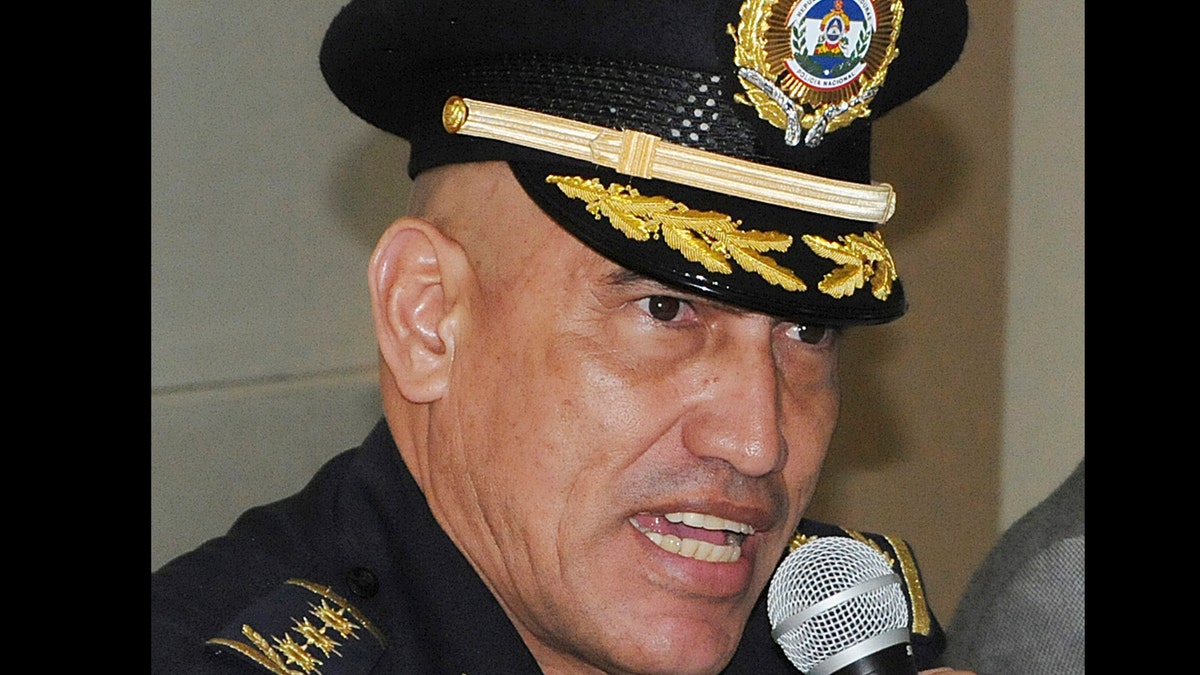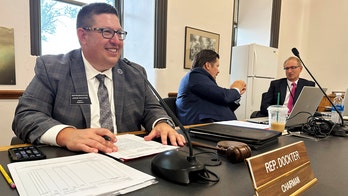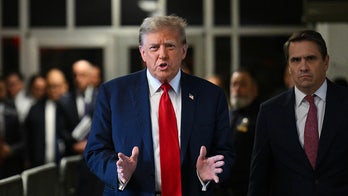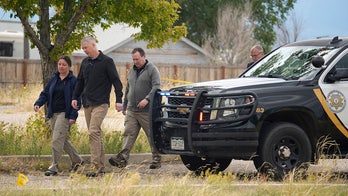
Honduran police official Juan Carlos Bonilla Valladares, known as âEl Tigreâ or âThe Tigerâ, speaks to the press after he was sworn-in as Honduras' new Chief of Police in Tegucigalpa, Honduras. (A2012)
Millions of dollars in aid that the Honduran National Police gets from the U.S. State Department do not go to units supervised directly by Juan Carlos Bonilla, a police chief once accused of extrajudicial killings and "social cleansing," the agency has assured Congress.
But The Associated Press has found that all police units are under the control of director general Bonilla, nicknamed the "Tiger," who in 2002 was accused of three extrajudicial killings and links to 11 more deaths and disappearances.
He was tried on one killing and acquitted. The rest of the cases were never fully investigated.
Honduran law prohibits any police unit from operating outside the command of the director general, according to a top Honduran government security official, who would only speak on condition of anonymity. He said that is true in practice as well as on paper.
Celso Alvarado, a criminal law professor and consultant to the Honduran Commission for Security and Justice Sector Reform, said the same.
"Every police officer in Honduras, regardless of their specific functions, is under the hierarchy and obedience of the director general," he said.
The official line from Honduras, however, is that the money does not go to Bonilla.
"The security programs that Honduras is implementing with the United States are under control of the ministers of security and defense," said Foreign Minister Arturo Corrales, who negotiates the programs with the State Department.
But the security official attributed the contradiction to the politics necessary in a country in the grip of a security emergency.
With 91 murders per 100,000 people, the small Central American nation is often called the most violent in the world. An estimated 40 percent of the cocaine headed to the U.S. — and 87 percent of cocaine smuggling flights from South America — pass through Honduras, according to the State Department.
The allegations against Bonilla, along with other concerns about police and military killings, prompted the U.S. Congress to freeze an estimated $30 million in Honduran aid last August. Most has been restored under agreements with the U.S. Department of State over the monitoring of Honduran operations receiving U.S. money.
The agreement doesn't specifically mention Bonilla, but Vermont Sen. Patrick Leahy, who has led a Congressional group that has questioned human rights violation in Honduras, said last week that he made his intentions clear:
"No units under General Bonilla's control should receive U.S. assistance without credible information refuting the serious allegations against him," Leahy said in an email to the AP.
That information so far has not been provided by the State Department, and the AP's findings have prompted more questions.
"Senator Leahy has asked the State Department to clarify how they differentiate between what they told the Congress and what is being said by those within Honduran police units under his authority," Leahy aide Tim Rieser said Friday. "Sen. Leahy, like others, made clear early on his concerns about Gen. Bonilla and the conduct of the Honduran police."
Dozens of U.S. Congressmen, Leahy chief among them, have been raising concerns for many years about abuses of authority and human rights violations by the Honduran police, a force of 14,000 officers that is considered among the most corrupt in the world.
Based on a story by The Associated Press.
Follow us on twitter.com/foxnewslatino
Like us at facebook.com/foxnewslatino




